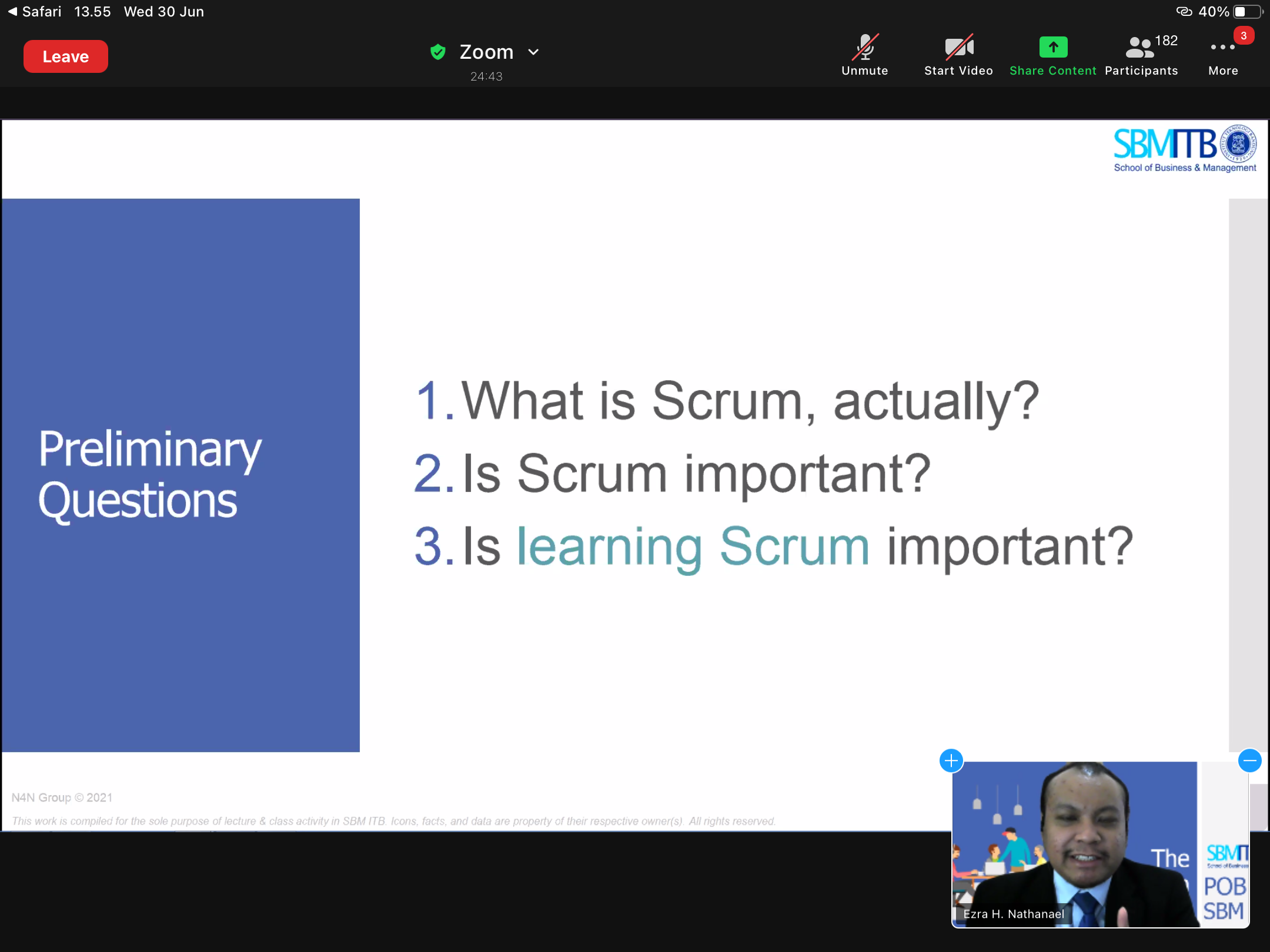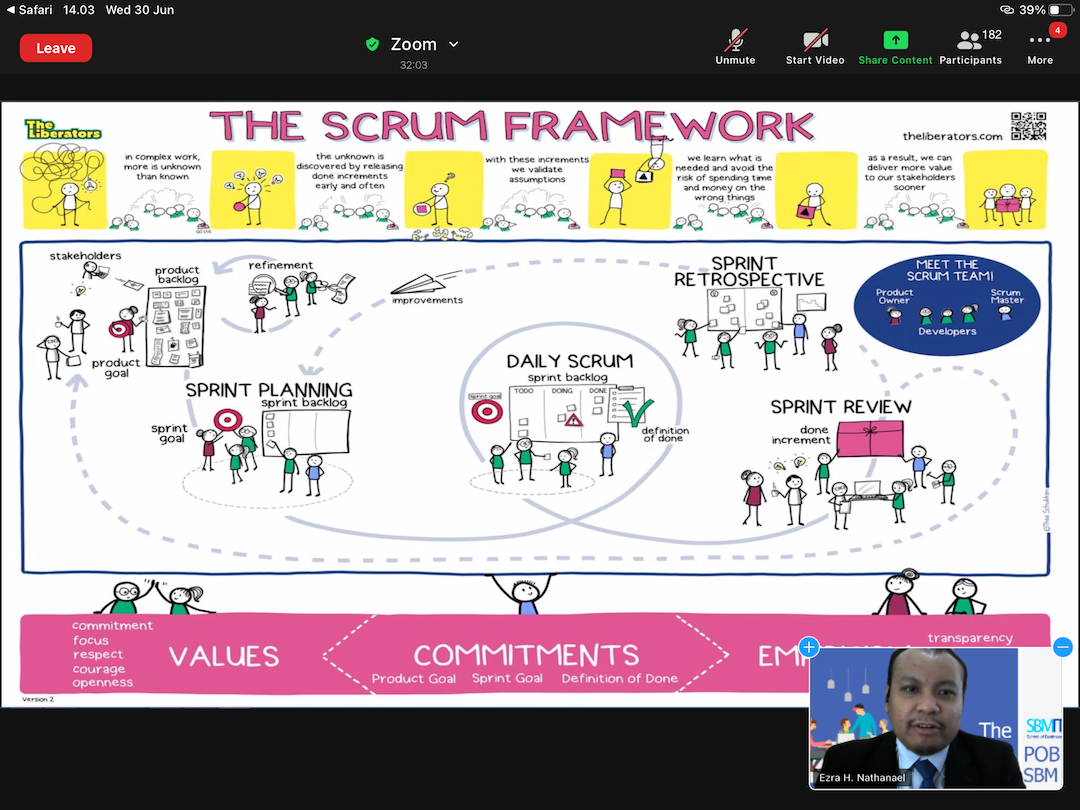 Scrum is a simple tool for project management that can be used in each stage of any specific work, making the process easier and eliminating misinterpretation,” said Ezra Hizkia Nathanael, Doctor of Science in Management student, in a guest lecture session, on Wednesday 30 June 2021. Implementing a two-way learning method, Ezra started his class by asking students to take a quiz on the Scrum material delivered on that day.
Scrum is a simple tool for project management that can be used in each stage of any specific work, making the process easier and eliminating misinterpretation,” said Ezra Hizkia Nathanael, Doctor of Science in Management student, in a guest lecture session, on Wednesday 30 June 2021. Implementing a two-way learning method, Ezra started his class by asking students to take a quiz on the Scrum material delivered on that day.
Later, Ezra held a question and answer session with the quiz winners and other students to check their understanding and increase class participation. “Scrum is important because it makes us more organized. Task division is easier so that they can achieve the goals set at the beginning,” said a student answering Ezra’s question about the benefits of Scrum.
By definition, Scrum is a framework that leverages an agile mindset to develop, deliver, and maintain complex products. Scrum is used in research, sales, marketing, and advanced technology areas with its initial emphasis on software development. However, in that class, Ezra focused more on the Scrum pillars: values, commitment, and empiricism.
In his presentation, Ezra mentioned that several checklists are needed to be agile according to Scrum, with a high stable backbone and high dynamic capabilities. This can be achieved by changing the organization in terms of processes, strategies, core concepts, people, and technology. In addition, it requires the perspective of the people involved to collaborate, ask for help, take small steps, get feedback, adapt, and work outside of their current expertise.





